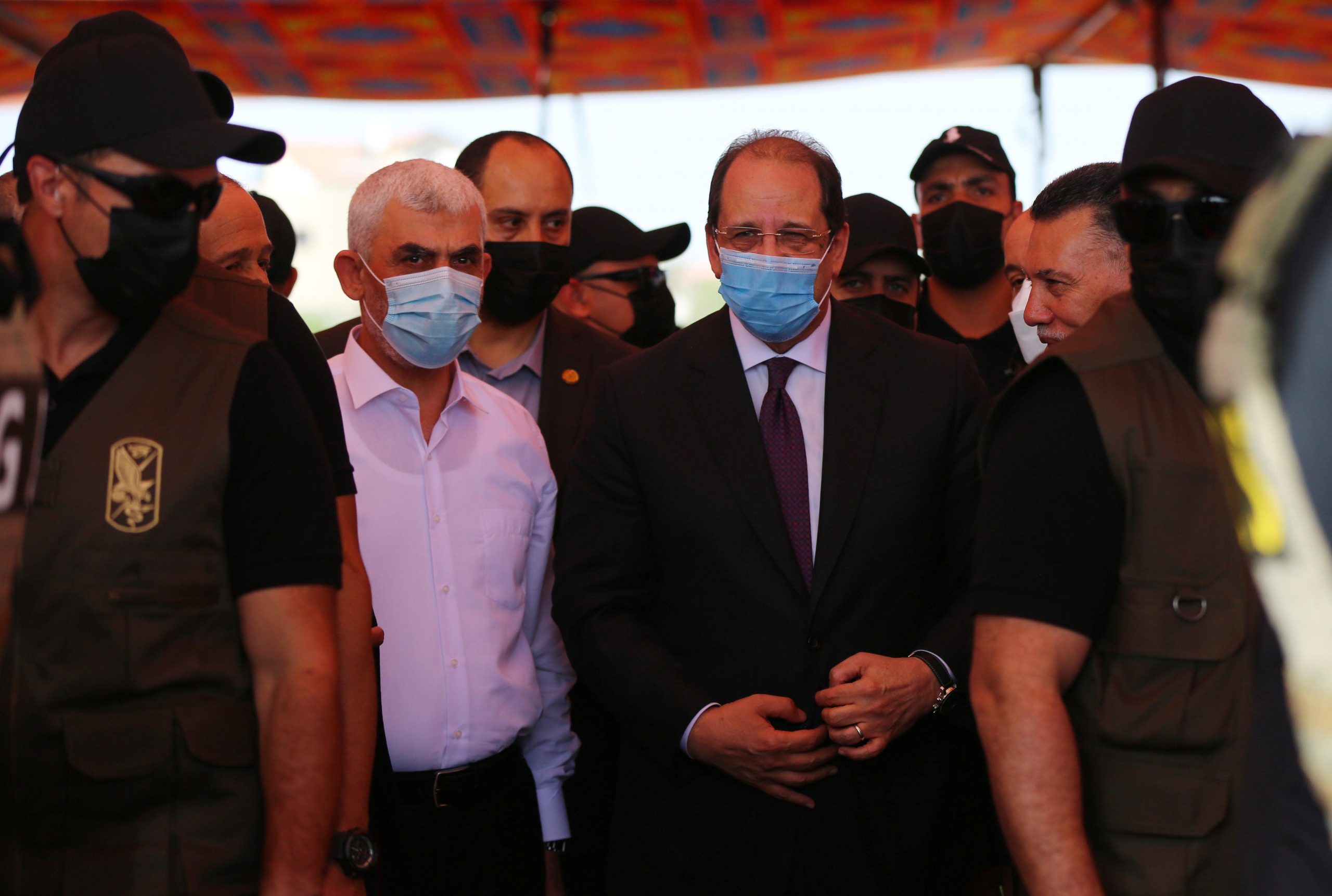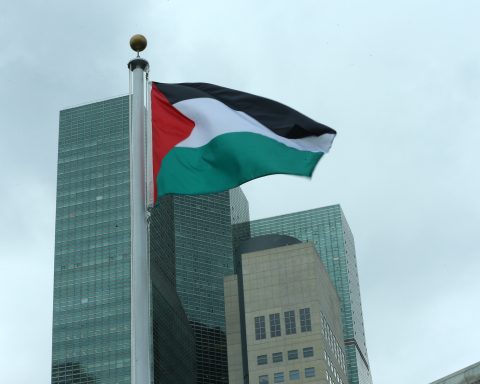Egypt’s intelligence chief Abbas Kamel urged Palestinian factions to achieve national reconciliation, as he discussed shoring up an informal ceasefire brokered by Cairo. Kamel held the meeting in the Gaza Strip a day after talks with Israeli Prime Minister Benjamin Netanyahu in Tel Aviv, Egypt’s state news agency said.
After the meeting on Monday, Hamas’s top leader expressed optimism about reaching a prisoner exchange with Israel, while Egyptian mediators seek a long-term ceasefire following an 11-day war in the Gaza Strip earlier this month.
He said “there is a real chance to make progress” in indirect negotiations that could involve the release of Palestinian prisoners held by Israel, and the return of two Israeli citizens and remains of two Israeli soldiers held by Hamas since the previous war in 2014.
Egypt often serves as a mediator between Israel and Hamas and was a key player in negotiating the ceasefire that ended the fighting. Kamel, who has not given public statements, is the highest-ranking Arab official to visit Gaza since 2018.
“Today, by the grace of Allah, after this victory of May 2021, our Palestinian cause is making tangible and clear progress,” Yahya Sinwar, the leader of Hamas, said.
Israeli Defense Minister Benny Gantz said any reconstruction of Gaza would depend on progress in the issue of returning captive Israelis held by Hamas.
“We are willing to help with fixing the area and rebuilding it. But it is conditioned with the return of our abducted soldiers,” he said. Gantz also said the rules have changed in Israel’s dealings with Hamas and vowed a much harsher response to any breaches of the new ceasefire.
“We will brutally retaliate, but we will do it in our own time and will not accept the previous reality to show itself again,” he said.
Another senior Hamas official said Israel must halt its “aggression” in both Gaza and Jerusalem if it wants calm following this month’s fighting in the Gaza Strip.
“We discussed several files, most importantly the necessity to oblige the occupation to stop its aggression on Gaza, Jerusalem, Sheikh Jarrah and all over Palestine,” Khalil Al Haya told reporters. He said Israel must also fully lift the blockade it imposed on Gaza when Hamas seized power from rival Palestinian forces in 2007.
The war, which was halted by a ceasefire on May 21, was triggered by weeks of protests and clashes in Jerusalem over Israel’s violent policing of the Al-Aqsa Mosque and efforts by settler groups to evict Palestinian families in the nearby Sheikh Jarrah neighborhood.
Hamas fired more than 4,000 rockets towards Israeli cities during the fighting, mostly destroyed in the air by the Iron Dome anti-missile system, while Israeli warplanes struck about 1,000 targets in Gaza.
More than 250 people were killed, the vast majority of them being Palestinians living in Gaza, and parts of the besieged territory suffered heavy damage.














